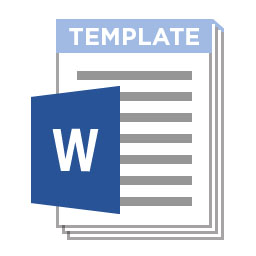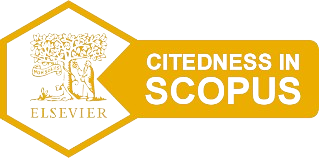Beating Barriers to Formative Assessment in a Testing-Oriented Nation
DOI:
https://doi.org/10.15408/tjems.v11i1.40391Keywords:
penilaian formatif, hambatan, pengajaran Bahasa Inggris, formative assessment, barriers, ELTAbstract
Abstract
Indonesia has a been a testing-oriented country since its inception. Yet, over the past decade, assessment policies in Indonesia have gradually strengthened their emphasis on formative assessment. In general, Indonesian teachers’ understanding of formative assessment is still relatively modest; in fact, some teachers still consider formative assessment to be challenging, if not impossible. Nevertheless, others have embraced the concept and have managed to overcome the barriers of large classes, limited time, and the long-standing culture of high-stakes testing. This article aims to provide examples of good practice in formative assessment in ELT. We present the results of a multiple case study, involving eight ELT senior high school teachers representing various learning contexts in Indonesia. Drawing on data from interviews and classroom observations, the study revealed that these teachers recognized the barriers in implementing formative assessment deriving from limited time and large classes, yet they were able to overcome these barriers by using teaching modifications and technological tools as solutions to applying formative assessment. This study highlights the pivotal role of teachers’ assessment literacy to enhance and reap the benefits from formative assessment.
Abstrak
Indonesia telah menjadi negara yang berorientasi pada ujian sejak awal berdirinya. Tetapi, selama dekade terakhir, kebijakan penilaian di Indonesia secara bertahap semakin menekankan pada penilaian formatif. Secara umum, pemahaman guru-guru Indonesia tentang penilaian formatif masih relatif terbatas; faktanya, beberapa guru masih menganggap penilaian formatif sebagai hal yang menantang, bahkan tidak mungkin dilakukan. Meskipun demikian, beberapa guru telah menerima konsep ini dan berhasil mengatasi hambatan seperti kelas yang besar, waktu yang terbatas, dan budaya ujian berisiko tinggi yang telah berlangsung lama. Artikel ini bertujuan untuk memberikan contoh praktik baik dalam penilaian formatif dalam pengajaran Bahasa Inggris. Kami menyajikan hasil studi multi-kasus, yang melibatkan delapan guru Bahasa Inggris sekolah menengah atas yang mewakili berbagai konteks pembelajaran di Indonesia. Berdasarkan data dari wawancara dan observasi kelas, studi ini mengungkapkan bahwa para guru ini menyadari hambatan dalam menerapkan penilaian formatif yang berasal dari waktu yang terbatas dan kelas yang besar, namun mereka mampu mengatasi hambatan tersebut dengan menggunakan modifikasi pengajaran dan alat teknologi sebagai solusi untuk menerapkan penilaian formatif. Studi ini menyoroti peran penting literasi penilaian guru untuk meningkatkan dan memetik manfaat dari penilaian formatif.
How to Cite: Defianty, D., Wilson, K. (2024). Beating Barriers to Formative Assessment in a Testing-Oriented Nation. TARBIYA: Journal of Education in Muslim Society, 11(1), 1-12. doi:10.15408/tjems.v11i1. 40391.
References
Akhmedina, A. 2017. Challenges of implementing formative assessment at Nazarbayev Intellectual School. Unpublished Master thesis, Nazarbayev University Graduate School of Education, Rusia.
Arrafii, M. A., & Suhaili, M. (2015). Formative assessment literacy and practice: A study of English teaching in secondary school. Jurnal Ilmiah IKIP Mataram, 2(2), 515–524.
Arrafii, M. A., & Sumarni, B. (2018). Teachers’ understanding of formative assessment. Lingua Cultura, 12(February), 45–52. https://doi.org/10.21512/lc.v12i1.2113
Astiandani, F., & Anam, S. (2021). EFL Teachers’ Perceptions Towards the Implementation of Online Formative Assessment Amidst the Covid-19 Pandemic. Journal of English Language Teaching, 8(2), 269–277.
Beatty, I. ., & Gerace, W. . (2009). Technology-enhanced forma tive assessment: a research-based pedagogy for teaching science with classroom response technology. Journal of Science Education and Technology, 18, 146–162.
Berry, V. Sheehan, S. & Munro, S. 2019. What does language assessment literacy mean to teachers?. ELT Journal 73/2:113-123.
Bhandari, B. L. (2020). English Language Teaching and Research Formative Assessment: English Teachers’ Perspectives and Practices, 2(2), 9–18.
Black, P., & Wiliam, D. (1998). Assessment and Classroom Learning. Assessment in Education : Principles , Policy & Practice, 5(1), 7–74. https://doi.org/10.1080/0969595980050102
Box, C., Skoog, G., & Dabbs, J. M. (2015). A Case Study of Teacher Personal Practice Assessment Theories and Complexities of Implementing Formative Assessment. American Educational Research Journal, 52(5), 956–983. https://doi.org/10.3102/0002831215587754
Brady, B. (2012). Managing assessment in large EFL classes. In C. Coombe, P. Davidson, B. O’Sullivan, & S. Stoynoff (Eds.), The Cambridge Guide to Second Language Assessment (pp. 291–298). New York: Cambridge University Press.
Carless, D. (2011). From Testing to Productive Student Learning: Implementing Formative Assessment in Confucian-heritage Settings. New York: Taylor & Francis
Cauley, K. M., & McMillan, J. H. (2010). Formative Assessment Techniques to Support Student Motivation and Achievement. The Clearing House, 83(August 2012), 1–6. https://doi.org/10.1080/00098650903267784
Chen, Q., May, L., Klenowski, V., & Kettle, M. (2014). The enactment of formative assessment in English language classrooms in two Chinese universities: Teacher and student responses. Assessment in Education: Principles, Policy and Practice, 21(3), 271–285. https://doi.org/10.1080/0969594X.2013.790308
Cheng, L., Rogers, W. T., & Wang, X. (2008). Assessment purposes and procedures in ESL/EFL classrooms. Assessment and Evaluation in Higher Education, 33(1), 9–32. https://doi.org/10.1080/02602930601122555
Creswell, J. W. (2005). Educational Research: Planning, Conducting, and Evaluating Quantitative and Qualitative Research. Upper Saddle River, NJ: Merrill/Prentice Hall.
Figa, J. G., Tarekegne, W. M., & Kebede, M. A. (2020). The Practice of Formative Assessment in Ethiopian Secondary School Curriculum Implementation: The Case of West Arsi Zone Secondary Schools. Educational Assessment, 25(4), 276–287. https://doi.org/10.1080/10627197.2020.1766958
Flick, U. (2014). The SAGE Handbook of Qualitative Data Analysis. Los Angeles: SAGE researchmethods.
Gu, P. Y. (2014). The unbearable lightness of the curriculum: What drives the assessment practices of a teacher of English as a Foreign Language in a Chinese secondary school? Assessment in Education: Principles, Policy and Practice, 21(3), 286–305. https://doi.org/10.1080/0969594X.2013.836076
Hargreaves, D. (2003). Education epidemic: transforming secondary schools through innovation networks. London: Demos.
Jiang, Y. (2014). Exploring Teacher Questioning as a Formative Assessment Strategy. RELC Journal, 45(3), 287–304. https://doi.org/10.1177/0033688214546962
Johnson, B., & Christensen, L. B. (2012). Educational research : quantitative, qualitative, and mixed approaches (4th ed). Thousand Oaks, Calif: SAGE Publications.
Looney, J. (2010). Making it Happen: Formative Assessment and Educational Technologies. Promethean Thinking Deeper Research Papers. Retrieved from http://innovationunit.org/sites/default/files/Promethean - Thinking Deeper Research Paper part 3.pdf
Merriam, S. B. (1998). Qualitative Research and Case Study: Applications in Education. San Fransisco: Jossey-Bass Publishers.
OECD. (2015). Education in Indonesia: Rising to the Challenge. Retrieved from http://dx.doi.org/10.1787/9789264230750-en
Oswalt, S. . (2013). Identifying Formative Assessment in Classroom Instruction: Creating an Instrument to Observe Use of Formative Assessment in Practice. Boise State University.
Panadero, E., Brown, G. T. L., & Strijbos, J. W. (2016). The Future of Student Self-Assessment: a Review of Known Unknowns and Potential Directions. Educational Psychology Review, 28(4), 803–830. https://doi.org/10.1007/s10648-015-9350-2
Peraturan Menteri Pendidikan dan Kebudayaan Nomor 129a/U/2004 (2004). Indonesia.
Pinchock, N., & Brandt, W. C. (2009). Connecting Formative Assessment Research to Practice: An Introductory Guide for Educators. Retrieved from https://eric.ed.gov/?id=ED509943
Proudfoot, K. (2024). Teachers’ perspectives on pay incentives in England: performance evaluation in a context of high-stakes accountability. Educational Assessment, Evaluation and Accountability, (0123456789). https://doi.org/10.1007/s11092-024-09437-6
Purpura, J. E. (2016). Second and Foreign Language Assessment. Modern Language Journal, 100, 190–208. https://doi.org/10.1111/modl.12308
Quyen, N. T. Do, & Khairani, A. Z. (2016). Reviewing the Challenges of Implementing Formative Assessment in Asia: The Need for a Professional Development Program. Journal of Social Science Studies, 4(1), 160. https://doi.org/10.5296/jsss.v4i1.9728
Russel, M. K. (2010). Technology-Aided Formative Assessment of Learning: New Developmental and Application. In H. Andrade & G. J. Cizek (Eds.), The Handbook of Formative Assessment (pp. 125–138). New York: Routledge.
Scott, D., & Morrison, M. (2007). Key ideas in educational research. London: Continuum.
Stake, R. (2005). Qualitative case studies. In N. K. Denzin & Y. S. Lincoln (Eds.), The Sage handbook of qualitative research (3rd ed., pp. 433–466). Thousand Oaks, CA: Sage.
Stake, R. (2006). Multiple Case Study Analysis. New York: Guilford Press. Retrieved from https://books.google.com.au/books?id=Iht_QgAACAAJ
Topping, K. J. (2009). Peer Assessment. Theory Into Practice, 48(1), 20–27.
Trucano, M. (2012). Information and communication technologies. In H. A. Petrinos (Ed.), Strengthening Education Quality in East Asia: System Assessment and Benchmarking for Education Results. SABER/UNESCO/The World Bank.
White, P., Syncox, D., & Alters, B. (2011). Clicking for grades? Really? Investigating the use of clickers for awarding grade-points in post-secondary education. Interactive Learning Environments, 19(5), 551–561. https://doi.org/10.1080/10494821003612638
Widiastuti, I., & Saukah, A. (2017). Formative assessment in EFL classroom practices. Bahasa & Seni, 45(1), 50–63. Retrieved from http://journal2.um.ac.id/index.php/jbs/article/view/677/419
Wiliam, D., & Leahy, S. (2015). Embedding Formative Assessment: Practical Techniques for K-12 Classrooms. West Palm Beach, Fla: Learning Sciences International. Retrieved from https://books.google.com.au/books?id=1ifZrQEACAAJ
Yin, R. K. (2003). Case Study Research: Design and Methods (3rd ed.). Thousand Oaks, CA: SAGE Publications. Retrieved from https://books.google.com.au/books?id=FzawIAdilHkC.











